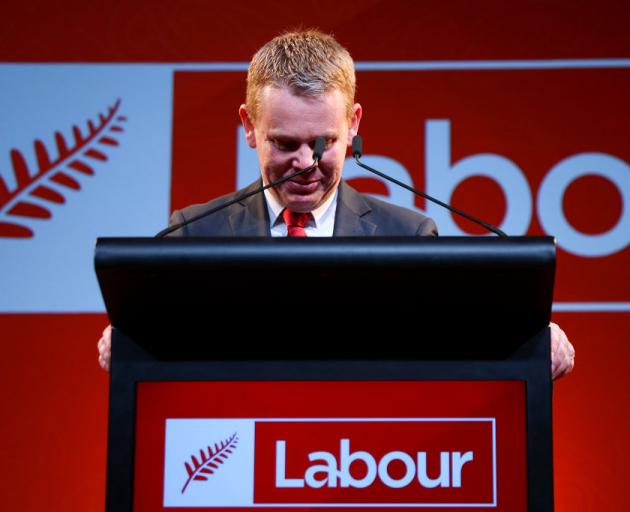
The Prime Minister, Christopher Luxon, uncomfortably sandwiched between the Treaty revisionists of Act New Zealand and New Zealand First, has precious little room in which to manoeuvre.
Labour should, therefore, be taking full advantage of Luxon’s discomfort by presenting itself as the only party capable of leading New Zealand out of the badlands of racial disharmony and conflict.
This it cannot do, however, because it has positioned itself alongside the Greens and Te Pāti Māori at the uncompromisingly radical end of the political spectrum.
The reasoning behind Labour’s eagerness to present itself as every bit as radical as the Greens and Te Pāti Māori isn’t difficult to grasp.

They are terrified that any attempt to distance Labour from the positions carved out by the Greens and Te Pāti Māori will only encourage more desertions.
When your (supposedly major) party is only eight percentage points away from descending into what most political scientists encouragingy call the "death zone" — i.e. a poll result under 20% — the instinct, like raw recruits under fire, is to bunch up.
Which only makes it easier for your enemies to shoot you down.
Labour needs to put as much daylight as possible between itself and its radical comrades. Especially when it was the electorate’s negative reaction to what seemed to be Labour’s wholehearted embrace of the same ideological positions that have, for years, kept Te Pāti Māori and the Greens trapped in the "death zone", that drove thousands of former Labour voters into the arms of National, Act and NZ First.
This is not only necessary for Labour to have any chance of recovery, but also for the Greens and Te Pāti Māori to have the slightest hope of ever being in a position to pull the big levers of government.
Holding six of the seven Māori seats is all very well, but what can Te Pāti Māori’s MPs do with them except engage in performative Pakeha baiting on the floor of the House of Representatives?
Pumping up the Green vote to 11.6% is similarly unavailing if its only effect is to increase your party’s presence on the Opposition benches. For the minor parties to be effective, they must attach themselves to a major party.
But that’s the question — isn’t it? Are New Zealand voters convinced that Labour will ever again be regarded as a "major" party? Or do they see Labour, the Greens and Te Pāti Māori joining together in some sort of ideologically polyamorous commune at the "left-wing nutters" end of the political spectrum?
Any halfway decent political leader of a centre-left party would by now have recognised the intensifying debate over Te Tiriti o Waitangi as a golden opportunity to stake out a position close enough to the concerns of non-Māori voters to make them very glad that Labour is, at long bloody last, talking sense; while remaining close enough to Māori voters for them to feel reassured that Labour is not preparing to consign Te Tiriti to the dustbin of history.
Something along the lines of: "If Te Tiriti is to remain a living document, then all New Zealanders — not just Māori, judges and academics — need to feel confident about what the document actually meant in 1840, and what it should mean in 2024."
Sadly, Chris Hipkins and his Labour caucus are unwilling to risk the wrath of Te Pāti Māori and the Greens by shifting their party out of its woke comfort zone.
Instead they are still hurling accusations of racism and white supremacy at the political parties which attracted a majority of the votes cast in the October election.
Oblivious, apparently, to the inherent unwisdom of branding the citizens whose votes you so desperately need if you are to have any chance of ever again forming a government — racists and white supremacists.
■ Chris Trotter is an Auckland commentator and writer.











